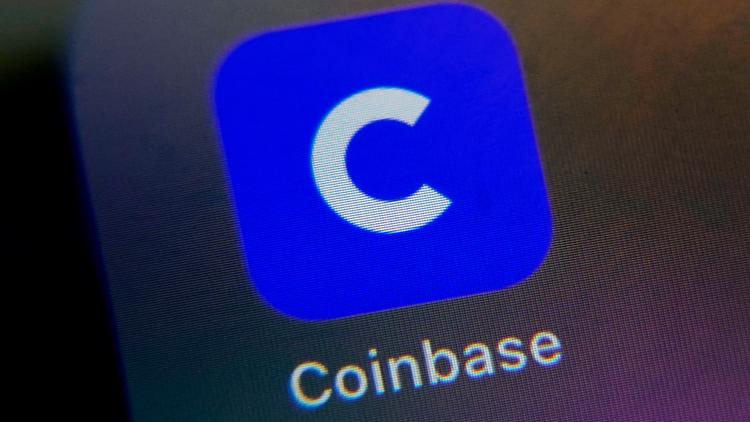WASHINGTON — Does it feel like cryptocurrency is everywhere you look? Super Bowl commercials, social media ads and all this talk about Bitcoin. If it wasn't obvious before, cryptocurrency has officially hit the mainstream.
If you have questions about cryptocurrency and don't know where to start, you're in the right place.
Welcome to Cryptocurrency 101: the basics of cryptocurrency. In this article, we’ll break down cryptocurrency into four parts:
- What is cryptocurrency?
- What makes it valuable?
- The process of investing and buying cryptocurrency?
- What are the risks of cryptocurrency?
What is cryptocurrency?
Encryption, Bitcoin, digital wallets and private keys. These are all cryptocurrency terms you might have heard before, but what do they mean?
Cryptocurrency is a currency or a medium of exchange that is based on solving code. The very word itself is two words combined. Cryptography, the study, and practice of sending secure messages or data between two or more parties and currency, a system of money.
Bidisha Chakrabarty, Ph.D., from Saint Louis University, broke down cryptocurrency into three parts.
“To restrict it to the definition of cryptocurrency, it’s these currencies which are cryptographic, which means they have to be digitized, encrypted and decentralized,” said Chakrabarty.
Unlike cash or gold, cryptocurrency does not exist physically but exists on computers in a series of digits, hence making it digitized. Cryptocurrency is not measured in quantities like the dollar, for instance, but it is expressed in digits of zero and one. Because cryptocurrency is expressed in digits, that means it is encrypted and stored on a network of computers.
“What this process does, very simply is it takes this original representation of the currency, the cryptocurrency that you're trying to keep, and then it encrypts it, you know, call it a plain text. And then when you send it to someone, just like you would be doing a transaction with any currency that you're letting someone use, you're going to give them some way of decoding it on their side,” said Chakrabarty.
With centralized currencies like the U.S. dollar, transactions are verified by going through your bank, but when it comes to cryptocurrency, the process is different. This is when the blockchain comes in.
According to Coinbase, a blockchain is a list of transactions that anyone can view and verify. The blockchain technology makes it possible to transfer money online without a middleman.
“Cryptocurrencies use blockchains to maintain these transactions, and because these cryptocurrency transactions are maintained in this blockchain, there is no need for any central party like a bank,” said Chakrabarty.
According to Investopedia, a blockchain records each transaction as a “block” of data, and that data can’t be deleted or altered. Blockchains are described as a form of public ledger where details of your transaction are recorded and verified by the people in your network.
What makes cryptocurrency valuable?
In recent years, cryptocurrencies have been popping up like weeds.
Cryptocurrency is so popular that after 22 years of operation, the Lakers and Clippers home arena was renamed Crypto.com Arena in December of 2021.
Bitcoin, the first and best-known cryptocurrency, has a current value in the tens of thousands of dollars and at one time was above $70,000.
Okay, so cryptocurrency is popular, but what determines its monetary value?
Professor Andrew Wu from the University of Michigan teaches cryptocurrency to more than 120,000 students, and he says the reasoning behind the value of cryptocurrency is very simple.
“The actual value that these units have in people's mind, like Bitcoin, for example, is whatever people believe it to be,” Wu explained.
Because a group of people assigned monetary value to Bitcoin and other cryptocurrencies, now people are willing to pay for it, even if it’s priced at $40,000.
You’re probably wondering why people assign value to crypto, and it’s because Bitcoin and other cryptocurrencies have some traits that make them attractive as a mode of exchange.
For example, the nature of cryptocurrency puts a hard limit on the number of units that can exist. That means there’s a limited supply. That makes it different from cash, which governments can always print more of, causing the value of the cash to go down. Crypto can be a hedge against that kind of inflation.
Not everyone has to accept the value of Bitcoin if enough people do, and the more people that do accept Bitcoin’s value, the higher its value can rise.
“People believe that it has some way it has some value, for example, either as an inflation hedge, or as a way of a speculative vehicle. So, it's very similar to a digital version of gold, and that's basically the case for almost all of these cryptocurrencies out there,” said Professor Wu.
How do you invest/buy cryptocurrency?
So now that we know what cryptocurrency is and what makes it valuable, let’s talk about how you can invest and buy cryptocurrency.
First, you have to choose a cryptocurrency exchange. A cryptocurrency exchange is a platform where you can buy, sell, and trade cryptocurrency. There are plenty of exchanges out there, so it’s important to spend time researching all the exchanges before making your decision. Some exchanges have fees, others rank higher in security, and some are for beginners. So, choose the one that works best for your investment needs.
Wu recommends sticking with reputable exchanges like Coinbase and Binance.US.
“Don't go to the unknown ones, you know. It doesn't matter what they say to you. They might give you bonuses for you to trade, they might, you know, have a bunch of promotional campaigns. Don't do that because they could easily take your money away,” said Wu.
After you pick a crypto exchange, the process is very similar to the stock market. Create an account with that exchange and fund your account with fiat money. Fiat, meaning a government-issued currency, like the U.S. dollar.
After you’ve funded your account, decide which crypto you want to buy. Coinmarket.com displays a plethora of cryptocurrencies to choose from including Bitcoin, Ethereum, and Dogecoin.
Once you’ve done that, place a buy order for your crypto and store your crypto in a digital wallet, which keeps your private keys and cryptocurrency safe.
Your private key is like a password. According to Coinbase, it’s a string of letters and number that allows you to access and manage your cryptocurrency.
Traditional stock investment apps like Robinhood, PayPal and Cashapp, have also added crypto trading for its users. Even Coinstar allows you to buy Bitcoin.
Bidisha Chakrabarty, Ph.D., said if you’ve ever used Apple Pay or Venmo, you’d be familiar with how this process works.
“Then you could just use that digital wallet. From that wallet you can use whichever cryptocurrency you bought to make payments to other entities who will accept that cryptocurrency. Now, everyone does not accept every cryptocurrency unlike say, dollars. Everyone accepts dollars as a payment in this country, but cryptocurrencies are not that way,” said Chakrabarty.
What are the risks of buying and investing in cryptocurrency?
Of course, with the excitement of any new financial venture comes potential risks for investors.
The Federal Trade Commission shared last year that 7,000 people had reported losses to fake cryptocurrency investments. The losses totaled more than $80 million. The report also noted that people between 20 and 30 have lost more money on investment scams than any other type of fraud.
The FTC cautioned cryptocurrency investors to be sure to research before investing, be wary of big promises or promotions, and said anyone who requests you pay by cryptocurrency, wire transfer, or gift card could be a scammer.
RELATED: FBI warns of cryptocurrency scams



